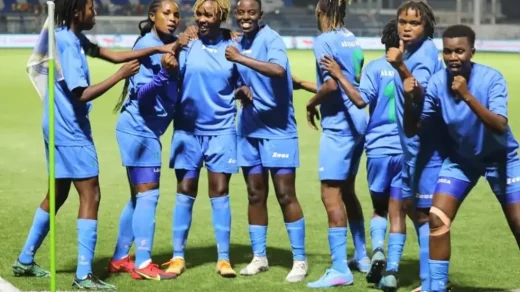With the announcement that the Utah Royals are officially set to re-launch in 2024, there is good reason to be excited. Women’s soccer didn’t fail in Utah the first time around as much as the club failed the league, the players and its fans. Previous owner Dell Loy Hansen’s racist comments forced his divestiture of both the Royals and Major League Soccer side Real Salt Lake back in 2020, which prompted the Royals to be relocated to Kansas City under new ownership. Of course, this new version of the Royals will not be owned and operated by Hansen, however, there needs to be a conversation around both the sins of the past team as well as the sports landscape in Utah. It would be malfeasance to overlook the culture that was allowed to exist in Utah under his tenure and that, to some degree, still exists in the state today.
While the club was owned by Hansen, the culture surrounding it was described as toxic, racist, and misogynistic. Previous abuses under former head coach Craig Harrington were well documented in the Report of the Independent Investigation to the U.S. Soccer Federation Concerning Allegations of Abusive Behavior and Sexual Misconduct in Women’s Professional Soccer, authored by former United States Attorney General Sally Q. Yates, as well as in the Report of the NWSL and NWSLPA Joint Investigative Team. While Harrington won’t be coaching the Royals (he’s currently banned from coaching in the NWSL until at least 2025), safeguards must be in place to ensure this sort of behavior does not happen again, and that if it does, it can be safely reported and those responsible dealt with in a swift manner, with no repercussions to the player or players that reported it.
Another set of precautions that must be taken is related to the long track record of racist incidents at sporting events in Utah. This article in the Daily Utah Chronicle by Caroline Jarvis details several incidents, from high school basketball to college volleyball as well as with the National Basketball Association’s Utah Jazz. The Royals themselves had incidents at games, with a fan being banned in 2019 after yelling racist comments toward Portland Thorns goalkeeper AD Franch.
Utah sports also has a lousy track record when it comes to homophobia, as this article from USA Today‘s Josh Peters outlines at length, and state legislators are still trying to prevent transgender athletes from competing in the state despite the Utah State Supreme Court’s injunction against a bill outlawing trans athletes competing that passed last year. Utah also outlawed gender-affirming care for minors this year, which drew condemnation from the Human Rights Campaign.
The State of Utah also is poised to enact a law that would, for all intents and purposes, ban abortion in the state by requiring all abortions “be provided in hospitals by not allowing new clinics to be licensed after May 2 and not allowing any to operate once their licenses expire,” according to a report in USA Today. While NWSL has teams in Florida and North Carolina, which have severely restricted abortion access, and Texas and Kentucky, which now ban access to the procedure outright, this would set the precedent of putting a new team in a market without access. Of course, a league return to Utah has been in the works since the original team left, but this is exactly the sort of bad-faith argument that will inevitably be made when someone wants to put a team in another place that restricts a pregnant person’s bodily autonomy.
It’s unfair to paint all of Utah or all Utah sports fans with these brushes, of course, and soccer spaces – especially women’s soccer spaces – are usually pro-LGBTQIA+, and are doing a better job of welcoming people of color. In an environment with these histories however, there simply must be clear safeguards instituted for players, staff, and fans from day one with swift and severe penalties for any violators. The Royals and the NWSL must make sure these protections are in place before anyone feels comfortable about the return of professional women’s soccer in Utah.
For starters, any fan banned by the previous organization should remain ineligible to attend games. And the organization and league must examine fan security measures in place in other countries. Mexico implemented the Fan ID system by Incode Technologies that forces anyone going to a game in the country to register with the system by using a cell phone to scan in a government-issued ID and take a picture of their face in order to purchase tickets. This system was instituted for all Liga MX and Liga MX Femenil matches in the wake of horrific riots during a match between Querétaro and Atlas in March 2022 that left at least 26 fans injured and forced Querétaro to play in empty stadiums for a year. This type of technology would help identify fans who exhibit problematic behavior and prevent them from returning to games.
But it can’t just be about fans either. Mechanisms to enforce institutional transparency and accountability should be in place throughout the organization so that everyone from technical and front office staff to owners and players are held responsible for bad actions. The league and club cannot be allowed to fail themselves, the fans, or the players this time around.


